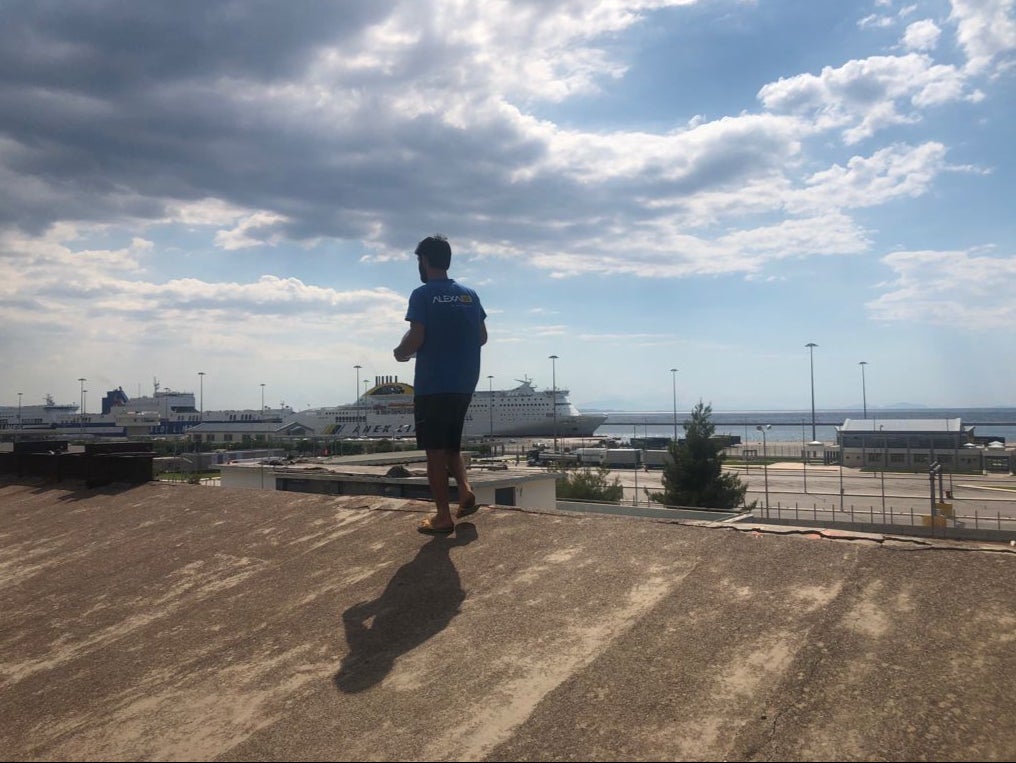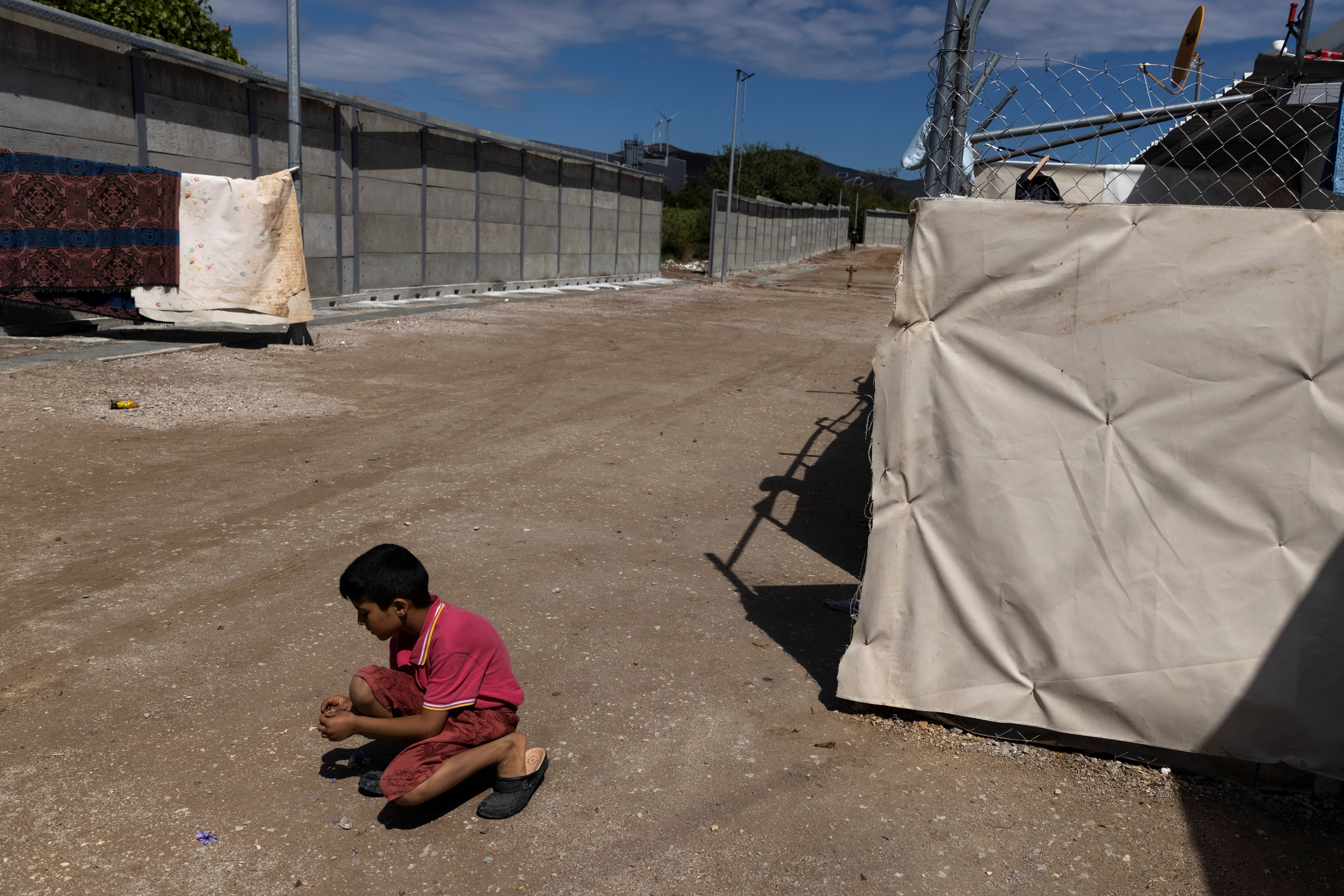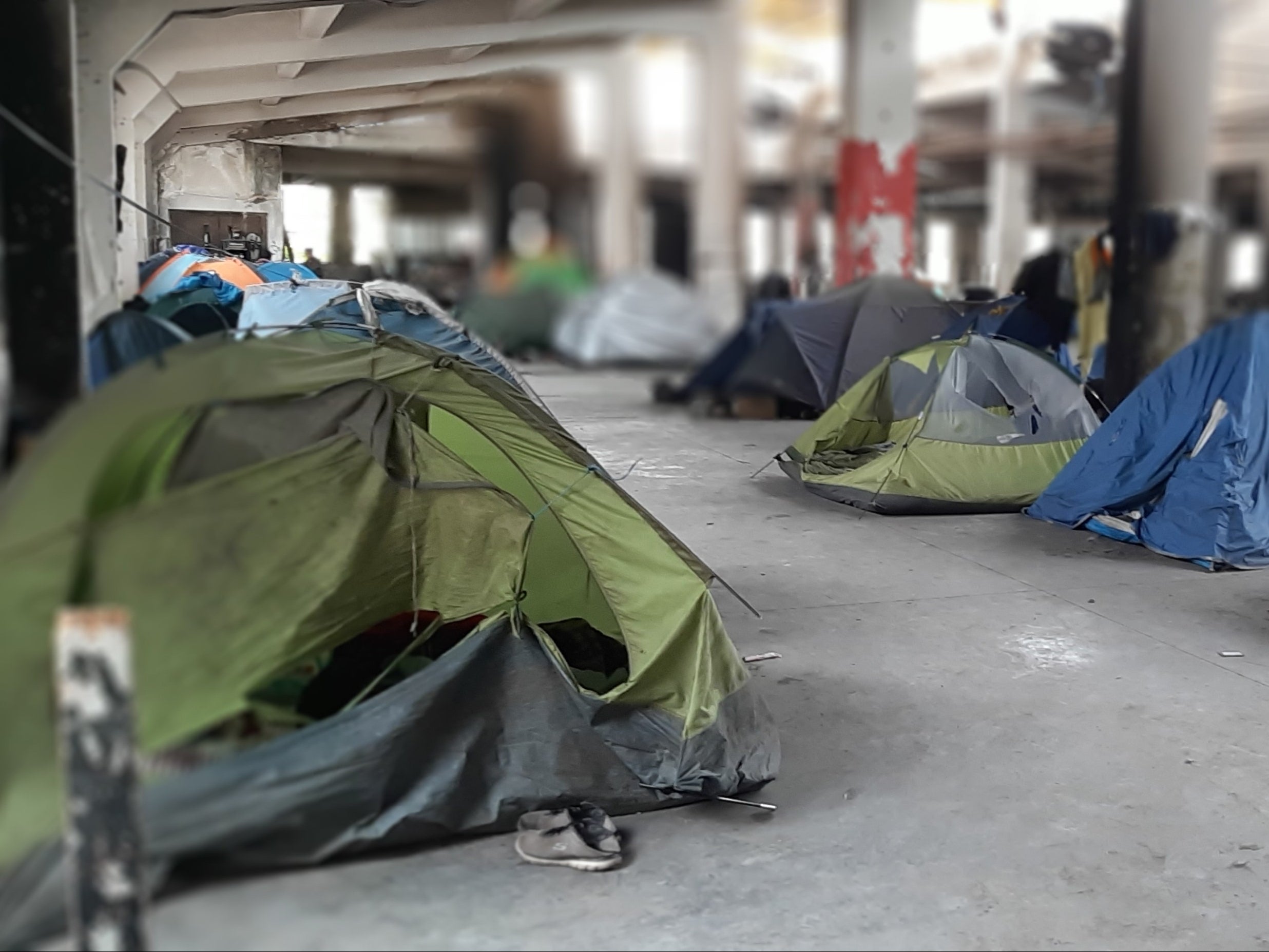‘I will get to Europe eventually’: The mental illness epidemic among child migrants at Europe’s door
Stranded in the Balkan countries with only traffickers as friends, child asylum seekers live in perilous conditions, write David L. Suber and Roshan de Stone

Nawab stands on the top floor of an abandoned factory building overlooking the port of Patras, in western Greece. His left forearm, and his leg, just above the knee, are covered in parallel scars, twisting a shiny pink against his darker skin – marks of self-harm from when he was held in the Malakasa detention centre.
During Greece’s first lockdown in March 2020, thousands of migrants were detained inside closed camps on the Aegean islands, following nationwide Covid-19 restrictions that blocked asylum seekers from moving on to mainland Greece.
Migrants and asylum seekers, facing overcrowded and insanitary conditions in the camps, were held in legal limbo. “All day, I would just do nothing, waiting. There was nothing to do but think and remember what happened to me at home. When I cut myself, the physical pain helps take away my mental pain for a while.”
Nawab left Afghanistan at the age of 14, travelling across Iran and Turkey before being smuggled to Greece by boat. Upon arrival, he was immediately taken to Malakasa detention centre and detained along with his friend Houssam.
A spattering of freckles gives a youthful look to Houssam’s otherwise sunken features. He shows a picture of himself two years earlier, a well-built muscular boy, almost unrecognisable as the emaciated person standing here now. “This is what the journey to Europe has done to me,” he says.
“I was in hospital for a month”, Houssam explains, lifting his shirt to show deep scars criss-crossing his stomach and chest. He inflicted these wounds upon himself in a desperate attempt to escape Malakasa. “It was the only way I had to get out from there. Only if you cut yourself this bad do you get to see a doctor.”
The cuts were so deep they had to be sutured together. This is not a new phenomenon, with reports warning from 2017 that migrants and asylum seekers detained on Greek island camps were resorting to self-harm in an attempt to escape the conditions.
Since the 2016 EU deal with Turkey to close the migration corridors to central Europe, thousands of people have remained in a bottleneck in the belt of Balkan countries between Greece and the EU Schengen areas, unable either to move forward or to go back. The pandemic exacerbated this situation.

Stuck in limbo, the undocumented migrants and asylum seekers are increasingly vulnerable in Greece. Those who try and cross the border to Macedonia or Albania risk abuse and pushback from border authorities or traffickers. Those who stay have to deal with the lack of adequate sanitary services and healthcare in camps, facing the psychological torture of a seemingly endless bureaucratic process.
During this protracted period, with no state support and during the harshest periods of lockdown, assistance from popular solidarity and NGO initiatives also waned, with very few organisations managing to keep their operations running.
The mental health costs of the last year for the undocumented population in Greece have been immense, especially for unaccompanied minors, who are especially vulnerable to different forms of abuse and exploitation.
The risk of trafficking
Many unaccompanied minors are coerced into working for smugglers as look-outs and guides on routes evading police patrols, as well as being forced to open lorries, sell drugs, or even prostitute themselves in order to pay for the next leg of the journey. “It is a well-known fact that unaccompanied minors are recruited into prostitution. The clients are mostly local Greek men, in exchange for 5-10 Euros,” says a Greek lawyer who is based in Athens but has previous experience working in Lesbos.
In this context, the legal distinction between smuggling (cross-border movement) and trafficking (individual exploitation) is reduced to a minimum. EU reports recognise that traffickers often hold out the false promise of immigration to recruit victims.
“It might sound strange to you, but our best friends here are the smugglers,” says Nawab. “Nobody is good to us here because nobody really cares about us. All you can do is to find the best among the bad people, because at least they will protect you from the worst ones.”
Exploitation and trafficking is only one of the risks minors face in Greece and along the Balkan route into Europe. Before lockdown restrictions were introduced across the continent, the Border Violence Monitoring Network initiative began compiling a database reporting the rising border violence involved in pushback operations carried out by police and border enforcement agents across eastern Europe.
In the same abandoned factory in Patras, along with Nawab and Houssam, we meet dozens of young boys between 14 and 17 years of age, all of whom have come from either Pakistan, Afghanistan, or north African countries. All of them, almost without exception, detail stories of violence and mistreatment suffered at the hands of border officers either in Turkey, Greece, or Balkan countries further along the route.
Munir, a young man from Afghanistan, was violently pushed back from Croatia to Bosnia in April 2021. “These scars are from shrapnel from a mine that exploded near my house in Afghanistan,” he says, pointing to two darkened marks on his shoulder. “But these ones below are what remain of bruises from where the Croatian police beat me.” Violence against unaccompanied minors during pushback operations is frequent and documented.
No one wants their parents to know what we are going through. It would break their heart
It is nearly impossible to guess his age. Munir is tall, slightly hunched, with shiny eyes under a long, thick, black fringe, which he shakes away from his face with a repeated twitch of the head.
His hands are cut across the palms from climbing the fences and then onto trucks boarding ships that travel from Patras to Ancona and Venice in Italy. “The trick is to run close to trucks whose covering is made of tarpaulin, cut an L-shaped opening on the roof or side of the truck and slip inside. Once you are in, you tape the truck’s folder from the inside so that border officers don’t see the cut.”
Most of the boys in the factory are in touch with their families. Their parents know they are on the journey, but only a few know of the real living conditions it entails. “My dad keeps on asking when I’m going to start sending money back,” says Munir. “He doesn’t know that I have been living like this for more than one year. No one wants their parents to know what we are going through. It would break their heart.”

The trauma from the combination of border violence and degrading healthcare conditions, and from exploitation both inside and outside the camps, is causing a widespread mental health crisis. Young unaccompanied boys are the demographic most affected, and it is hard to predict what impact such prolonged suffering could have on their future.
Signs of destitution are visible on the faces and bodies of each of the young men interviewed. Several humanitarian organisations are reporting that cases of suicide, post-traumatic stress disorder, drug abuse and anxiety are surging among unaccompanied minors, and scientific studies have been carried out into the effects of the pandemic on young refugees in particular.
The coronavirus has aggravated an already drastic situation for minors on the Balkan route.
The combined effects of the pandemic, the implementation of harsher border controls, and the EU having no shared plan to resettle unaccompanied minors mean there is a risk that hundreds of vulnerable children will only become more reliant on smugglers and traffickers in their quest to reach Europe, causing long-lasting damage to a generation of young men stranded at Europe’s borders. “It’s horrible what is happening to us,” Nawab says. “But rest assured, I will get to Europe eventually.” The question remains, however: in what state?
Join our commenting forum
Join thought-provoking conversations, follow other Independent readers and see their replies
Comments
Bookmark popover
Removed from bookmarks